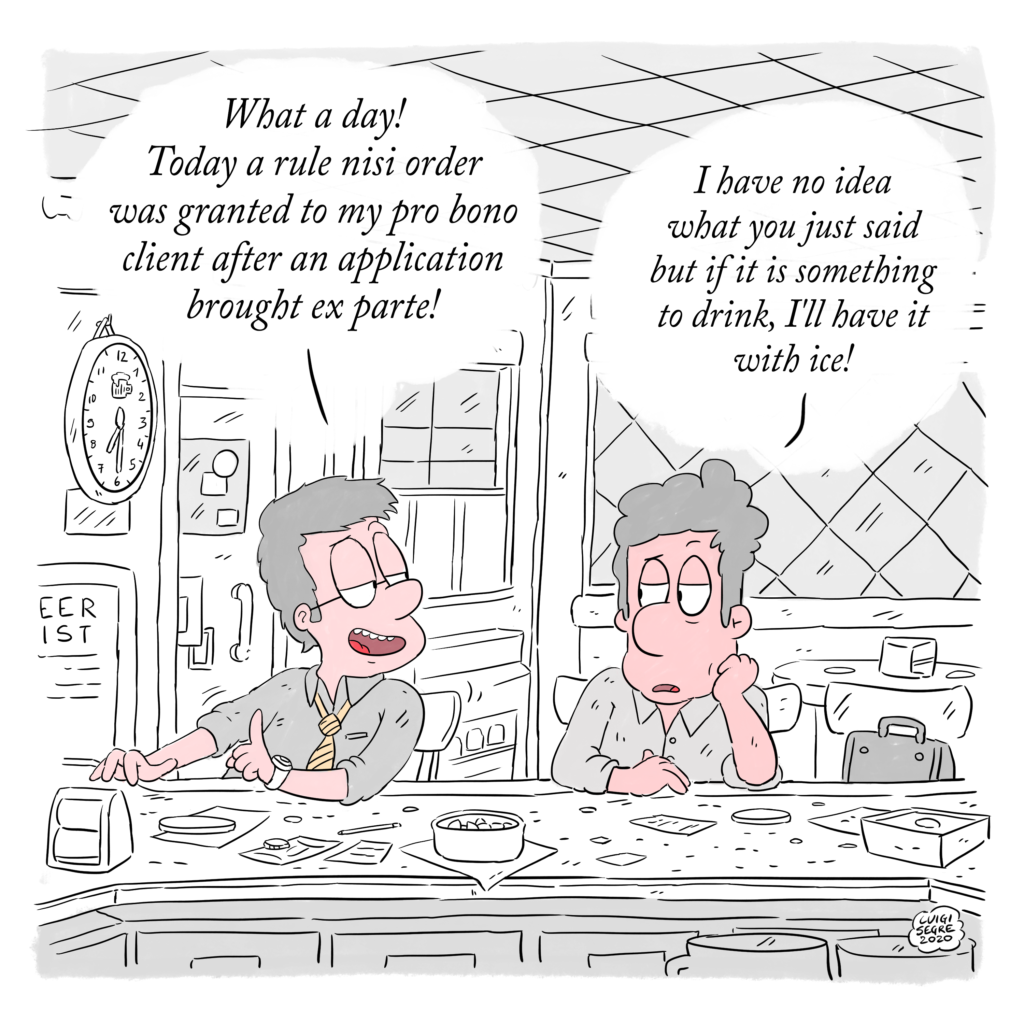Lawyer-speak, legal jargon, law-talk or legalese are words used to describe the language used by lawyers that at times seem like a different language. Whether written in legal documents or spoken in court or among lawyers, legalese is often difficult for non-lawyers to understand.
Black’s Law Dictionary describes legalese as a “peculiar language of lawyers, esp., the speech and writing of lawyers at their communicative worst, characterised by antique jargon, pomposity, affected displays of precision, ponderous abstractions and hocus-pocus incantations.”
Language is used to communicate, and the aim of communication is to convey information. To process information, understanding is necessary, and legal jargon hampers understanding of what is said or written.
The plain English movement promotes the use of plain language in legal documents: from President Nixon who declared that the Federal registry be written in “layman’s terms” to President Obama who signed legislation aimed at, “promoting clear government communication that the public can understand and use”.
The language used by lawyers must communicate directly with their audience, must be understood on first reading, without convolutedness, and must omit surplus words[1].
[1] Peter Butt at https://sas-space.sas.ac.uk/view/divisions/ials.html



